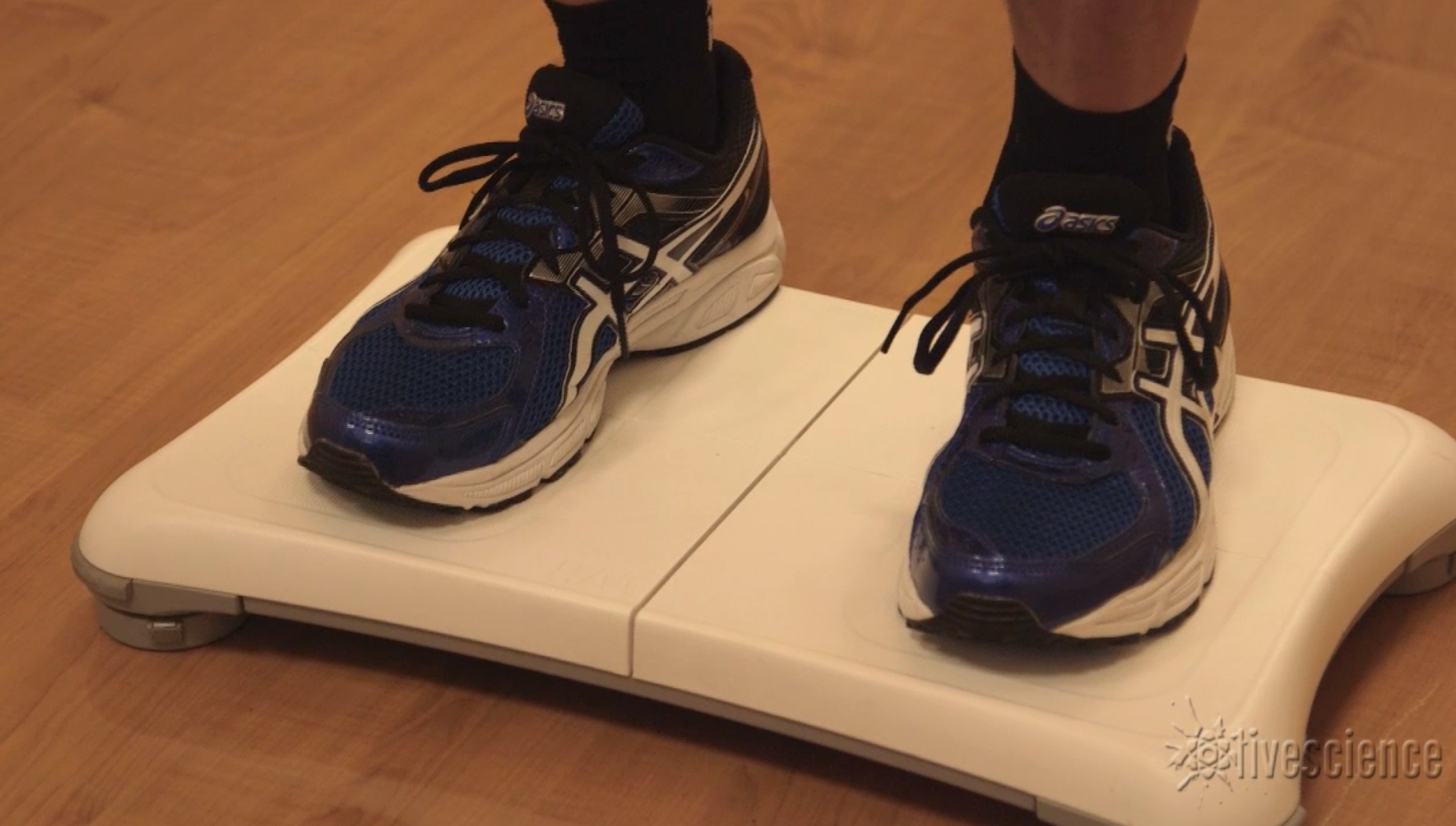For MS Patients, Wii Game Strengthens Brain

People with multiple sclerosis (MS) may benefit from working on their balance with an interactive video game system, a small study suggests.
Researchers in Italy found that men and women with mild-to-moderate MS symptoms who exercised at home for 12 weeks with a Nintendo Wii balance board system showed more positive-changes in areas of the brain responsible for balance and movement than people with MS who received no balance training.
This means that using the gaming system could help prevent falls, the researchers said. To use the Wii balance board, people place it on the floor, stand on it and do exercises. Sensors in the board give participants feedback on the accuracy of their movements.
A lack of balance is a common problem in people with MS, a disease in which the immune system attacks the body's own myelin, the protective coating around nerve fibers. Damaged nerve fibers can interrupt nerve signals traveling to and from the brain and spinal cord, resulting in symptoms including muscle weakness, difficulty walking and a loss of balance. [Video: MS Patient Takes On the Wii Balance Board]
The study showed "improvements in myelin sheaths of nerves connecting areas of the brain involved in balance and movement," said study author Dr. Luca Prosperini, a neurologist at Sapienza University in Rome, Italy. These improvements resulted in better nerve-signal transmission in these parts of the brain, he said.
Rehabilitative techniques, such as physical therapy, have restored balance and mobility in people with MS more effectively than have medications. But little was known about the structural changes in the brain resulting from better balance.
The findings were published online today (Aug. 26) in the journal Radiology.
Sign up for the Live Science daily newsletter now
Get the world’s most fascinating discoveries delivered straight to your inbox.
Balance training benefits
In the study, the researchers looked at 27 people with MS, ages 18 to 50. For 12 weeks, participants did 30-minute sessions of Wii Fit Plus balance training exercises five times a week, at home.
Brain scans taken before and after balance training was completed revealed "that repetitive training aimed at managing a specific symptom, such as balance, is highly effective and induces brain plasticity, or the brain's ability to change its function or structure following training," Prosperini told Live Science.
The improvements granted by the Wii balance board could reduce the risk of accidental falls in people with MS, resulting in fewer fractures and other injuries, Prosperini said.
"I think this is a very important study for MS patients, because it showed scientifically that the brain can change in response to balance training," said Dr. Karen Blitz, director of the North Shore-LIJ Multiple Sclerosis Care Center in East Meadow, New York, who was not involved in the research.
In the study, balance training had specific effects on brain centers and white matter tracts, but the findings also showed that these beneficial changes disappeared when the training stopped, Blitz said.
Exercising with MS
"Ongoing physical activity is very important for this disease, to improve a person's quality of life," Blitz said. Unfamiliar with the Wii Balance Board, she had not previously recommended the training to her MS patients, she said, but added that the new findings could be a big step to encourage ongoing exercise. She did caution that people with significant balance issues would need supervision when using the board.
Robert Manzolillo is one of Dr. Blitz's patients who has used the Wii Balance Board for about five years. He was diagnosed with MS eight years ago, and said he uses the Wii Fit soccer, skiing or yoga programs about once a week.
A 47-year-old physical therapist from Brightwaters, New York, Manzolillo leads an active lifestyle that includes daily stretching, walking, occasional short runs, biking and skiing. When his MS flares up, Manzolillo said he might get mild balance and vision symptoms for a few days, but this has never stopped him from remaining active.
"I use the Wii training as an adjunct to being active," Manzolillo said. "It helps to maintain and improve my balance by giving me real data and indicating my progress. This keeps me motivated and interested," he said.
Follow Live Science @livescience, Facebook & Google+. Originally published on Live Science.
Cari Nierenberg has been writing about health and wellness topics for online news outlets and print publications for more than two decades. Her work has been published by Live Science, The Washington Post, WebMD, Scientific American, among others. She has a Bachelor of Science degree in nutrition from Cornell University and a Master of Science degree in Nutrition and Communication from Boston University.









